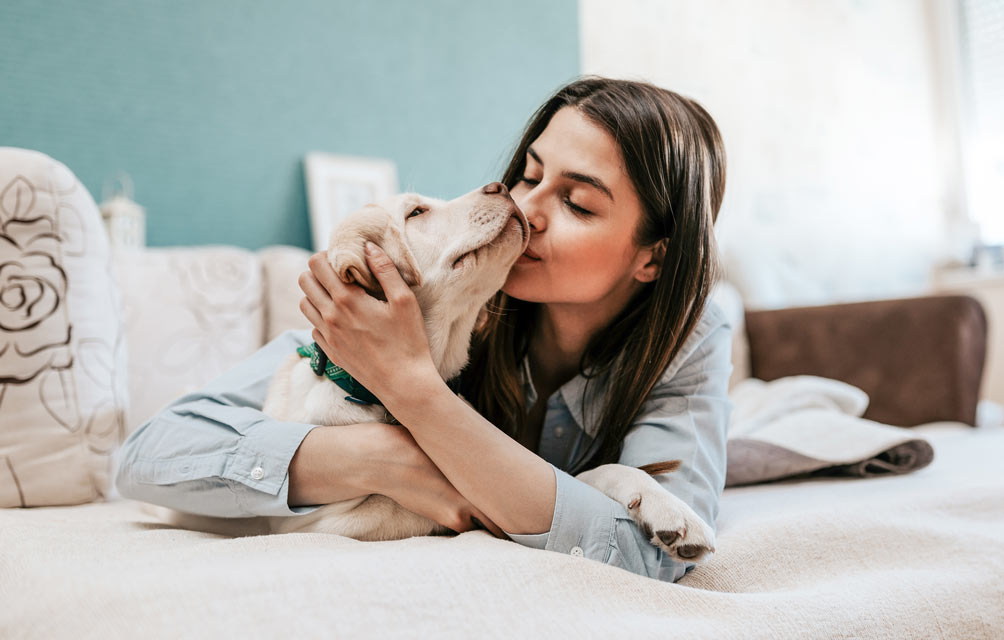First-Time Dog Owner Mistakes to Avoid

If you're getting a new dog for the first time, there are some things you'll want to avoid doing. They're straightforward once you know them, but it's easy to fall into their trap. Learn what they are, why you shouldn't do them, and what to do instead.
Not Giving Enough Consideration to Food
One of the most important decisions you'll make for your new dog is what type and how much food to give. Sometimes, people make this crucial decision based on cost, which isn't always the best thing to do. Also, people sometimes get a new type of food every time they need a new bag. That can cause problems in a dog's digestive tract, leading to vomiting and diarrhea.
The best way to choose your dog's diet is to talk to your veterinarian and take his or her advice.
Additionally, you should find out from the vet how much food your dog needs every day and use a measuring cup to make sure you're giving the right amount. Otherwise, you could be feeding too little or, more commonly, too much. Many people like to leave out food for their dog at all times, but that often leads to the dog becoming overweight later in life.
Not Following a Plan for Housetraining
Housetraining is a crucial step in developing a good house companion. If you are getting a puppy or a dog that isn't yet housetrained, you must have and follow a strict plan for training the dog. Not only that, but everyone in the home needs to know, understand, and follow the same plan, so the dog doesn't get confused and have their housetraining slowed down. Housetraining issues are one of the biggest causes of dogs going into shelters, so this is extremely important.
Here are the basics for housetraining a dog:
- Use a crate. It should only be big enough for the dog to turn around and lie down. The dog should be in the crate at night and when you aren't in direct supervision of him. Learn more: "Crate Training."
- Take the dog outside often. Set a timer if you must, but be sure you're taking the dog out every two hours or so in the beginning.
- Take the dog out after meals, after any playtime, and right before a nap or bed. Those are all times when dogs often need to go, so finding themselves outside every time they feel the urge helps teach them where to go.
- Stay outside with your dog. That way, you can observe and give him praise when he goes.
- Don't take your dog directly back into the house after he goes. Let him have some time to play or sniff around. If he knows he'll have to go right inside after doing his business, he might not go and that can lead to accidents inside.
- Don't reward your dog with a treat when you get back into the house. Take the treats outside with you and reward right when he goes. Otherwise, he will learn he gets a treat for going inside and will want to hurry up and get back in. That could mean he doesn't finish his outside business and does it inside a few minutes after getting in.
- If you have other dogs, sometimes it helps to have them go out together, but many times, the younger dog won't go when he's out with other dogs. There's just too much fun to be had playing with the others. So, you might have to take your young dog out separately. This is a trial and error thing, so you'll just have to see what works best for your dog.
Not Getting the Dog Used to Basic Grooming
Your dog, regardless of breed, will need tooth-brushing and nail trimming done at home. Some dogs also need routine fur brushing and ear cleaning. Remember that whatever you want your dog to allow you to do when he's older, you will need to get him used to as a puppy. That means start playing with his lips, toes, and ears the day you get him, working up to trimming nails, cleaning ears, and brushing teeth.
In fact, getting your dog used to the handling of all parts of his body, riding in the car, going for walks, and interacting with lots of people and other pets are all ways to help stave off behavior problems in the future.
Avoid the above mistakes when you get a new dog, and you'll be well on the way to developing a close, lifelong relationship with your canine pal. But don't forget to have fun, keep a sense of humor, and enjoy the process.
You May Also Like These Articles:
Helpful Tips for Trimming Your Dog's Nails
Disclaimer: This website is not intended to replace professional consultation, diagnosis, or treatment by a licensed veterinarian. If you require any veterinary related advice, contact your veterinarian promptly. Information at DogHealth.com is exclusively of a general reference nature. Do not disregard veterinary advice or delay treatment as a result of accessing information at this site. Just Answer is an external service not affiliated with DogHealth.com.
Notice: Ask-a-Vet is an affiliated service for those who wish to speak with a veterinary professional about their pet's specific condition. Initially, a bot will ask questions to determine the general nature of your concern. Then, you will be transferred to a human. There is a charge for the service if you choose to connect to a veterinarian. Ask-a-Vet is not manned by the staff or owners of DogHealth.com, and the advice given should not delay or replace a visit to your veterinarian.



